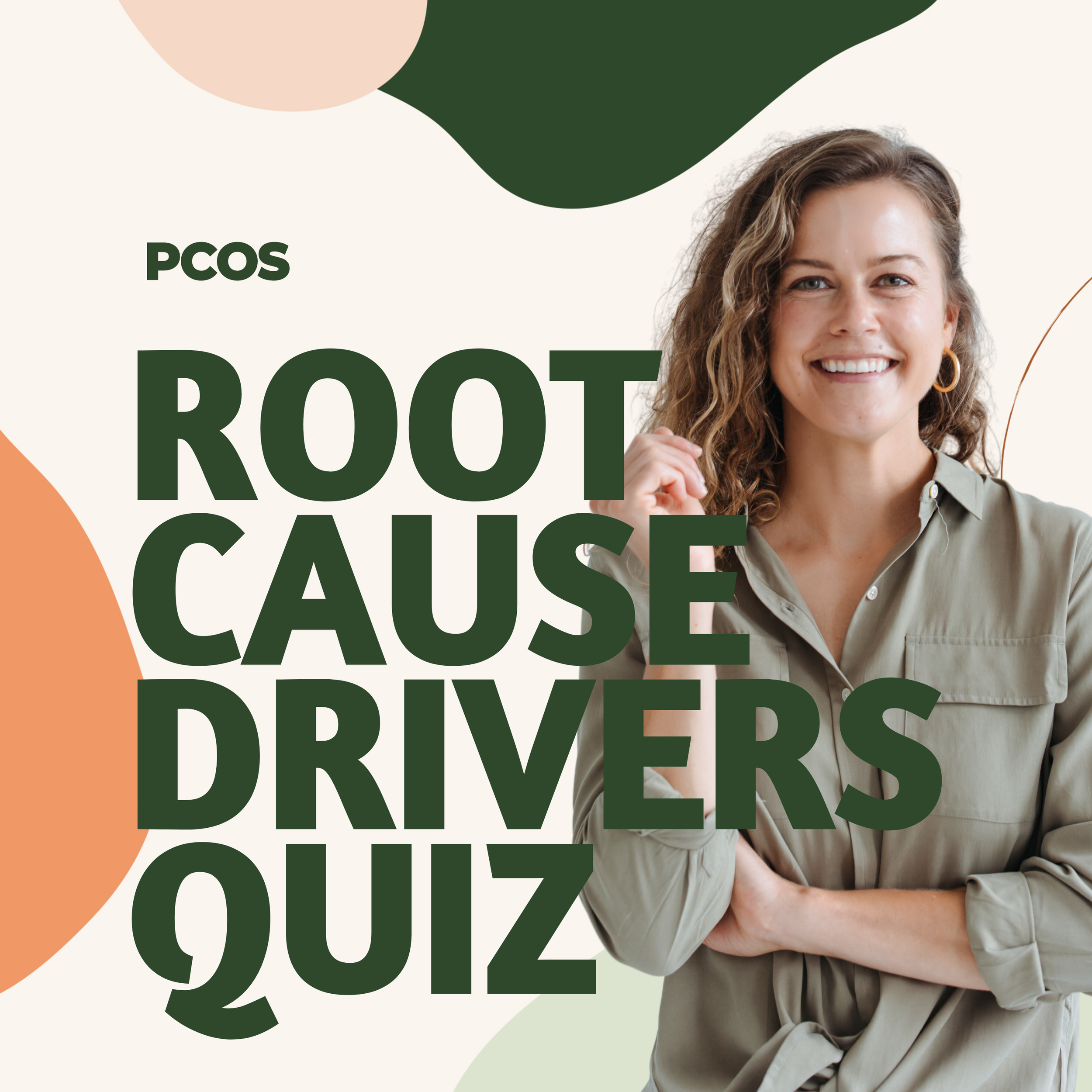How to Determine Your PCOS Root Causes
If you’ve been diagnosed with polycystic ovarian syndrome (PCOS), you probably have a lot of questions. You might be surprised to learn that PCOS isn’t actually a disease, but a collection of symptoms caused by imbalanced hormones. Because every woman is unique, these symptoms can present differently in each individual.
Since PCOS can interfere with many parts of your health, it’s important to do what you can to control it. Contrary to the way conventional medicine tends to work, this doesn’t just mean chasing symptoms and taking medications to cover them up. That process can not only be tedious and expensive (and potentially harmful to your health), but it also doesn’t identify what led to your symptoms in the first place.
In order to effectively control and understand your PCOS, you must identify its root cause. This is essential, since it will allow for more targeted diet and lifestyle strategies to help heal your body, and not just manage symptoms.
Here I will help you understand what the different PCOS root causes are, how they contribute to your PCOS symptoms, and how you can identify what root cause you may have.
Possible PCOS Root Causes
There are dozens of symptoms you may experience with PCOS. Yet the research shows that they all can be boiled down to 4 main root causes.
These include:
Insulin Resistance.
This means that your body stops responding well to the hormone insulin, which serves to lower your blood sugar. As a result, blood sugar levels become higher than they should, and your body produces even more insulin to compensate for these high blood sugar levels. When insulin levels are high, your metabolism stops burning fat. This is why symptoms such as weight gain and increased belly fat can occur. Other symptoms that can occur from this root cause include fatigue, acne, skin tags or discoloration, and frequent carbohydrate cravings.
Inflammation.
Inflammation is at the root of many health conditions, including PCOS. This is because inflammation stimulates your ovaries to produce more androgen hormones, which many women with PCOS have too much of. Inflammation can take its toll on just about every part of your body, and lead to symptoms such as weight gain, skin issues, joint pain, and headaches/migraines.
Gut imbalances.
Many women with PCOS have been shown to have dysbiosis, which is an imbalance in the amount of good and harmful bacteria in your gut. This imbalance doesn’t only affect your digestive system, but can manifest in many other areas in your body. In addition to digestive issues like constipation, bloating, and diarrhea, this root cause may also contribute to symptoms such as mental health disorders like anxiety and depression, food sensitivities, asthma, and environmental allergies. You can learn more about how the gut is connected to PCOS in this post.
Stress and Adrenal Dysfunction.
Many women with PCOS produce excess amounts of adrenal hormones, including androgens. In addition, having high levels of the stress hormone cortisol contributes to excess androgens as well as to insulin resistance. Women with PCOS tend to produce more cortisol, making them especially sensitive to the impact of stress on the body. If you have this root cause, you likely experience symptoms such as chronic fatigue, irritability, extreme PMS symptoms, low libido, sugar cravings, and symptoms of high androgens like facial hair growth and high blood pressure.
Coming off birth control pills.
The pill contains hormones that are intended to interfere with your body’s natural reproductive cycle. This includes stopping ovulation and the ability of sperm to fertilize an egg. Transitioning off of these synthetic hormones can cause your body to go into a form of withdrawal, and symptoms such as acne, IBS, irregular periods, infertility, mood swings, and hair loss may occur as a result. You can read more about “post-pill syndrome” including ways to support your body during it in this post.
When reading through these root causes, it’s important to keep in mind that some women may have one root cause, and other women may have a combination of all of them. In addition, the degree to which each of these root causes contributes to your symptoms can vary.
Discover the root causes of your PCOS symptoms and take control of your health today!
Take our quiz now to uncover the biggest drivers behind your condition. By completing the quiz, you'll gain access to a private podcast and workbook that will guide you in developing an action plan for healing naturally. It's time to identify your personal PCOS root causes and support them with targeted nutrition, lifestyle changes, and supplement strategies. Don't wait any longer - start your journey towards optimal health, balance, and joy now!


